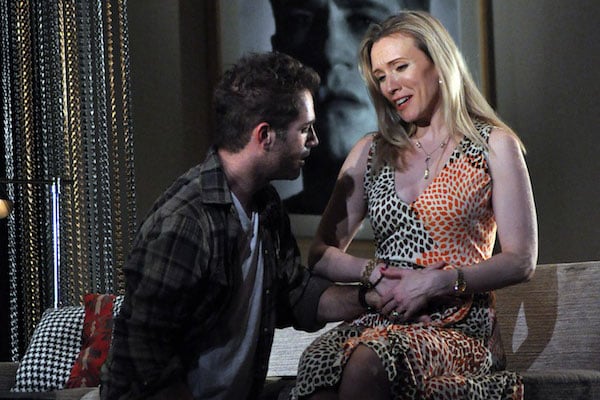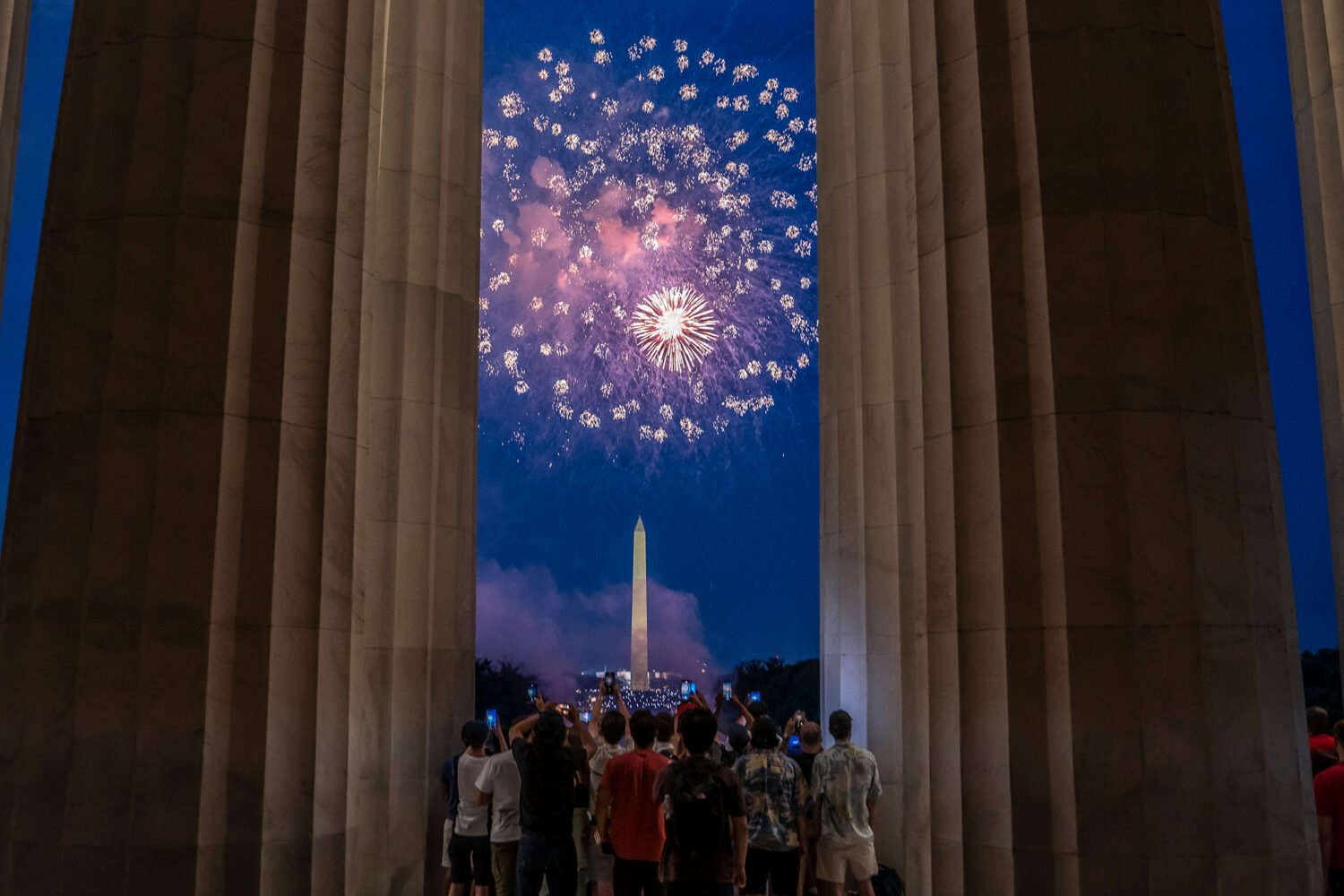Baritone Matthew Worth as Oprhée and soprano Sara Jakubiak as Eurydice in the Virginia Opera’s production of Orphée. Photograph by David A. Beloff.
This weekend offers the opportunity to see a rarely staged work by a seminal contemporary American composer. Philip Glass’s beguiling opera Orphée is currently in the repertory of the Virginia Opera, and conductor Steven Jarvi leads two performances at George Mason’s Center for the Arts—tonight and February 12—with baritone Matthew Worth as Orphée, soprano Sara Jakubiak as Eurydice, soprano Heather Buck as La Princesse, and tenor Jeffrey Lentz as Heurtebise. Sam Helfrich directs.
Glass’s opera is the latest in a long line of musical works depicting the Orpheus myth, though the composer’s inspiration is actually a film: Jean Cocteau’s 1950 classic Orphée. The opera’s libretto is a slightly condensed version of Cocteau’s script, which portrays Orphée as a poet in post–World War II Paris, a popular artist adored by the public but despised by the younger crowd of Left Bank, avant-garde writers. What sets Cocteau’s film (and Glass’s opera) apart from any number of Orpheus stories is that Orphée’s great love is not Eurydice (as is the case in Greek mythology), but La Princesse, or Death. When Eurydice dies, Orphée journeys to the Underworld, ostensibly to bring his wife back, but really to seek out the Princess. Only through her, Orphée believes, will he create a lasting work of art; his pursuit of her is both a longing for death and a quest for immortality.
Glass, who grew up in Baltimore, wrote Orphée in 1991, after the death of his wife, and followed it with two further Cocteau adaptations: La Belle et La Bête (1994) and Les Enfants Terribles (1996), which make up the Glass/Cocteau triptych. Orphée is quintessential Glass, in many ways, but to describe the piece as “minimalist,” the term often used to characterize the composer’s work, isn’t quite accurate here. Glass’s writing is tonal, and his musical ideas do begin with elemental melodic and rhythmic structures that repeat over the course of a line or passage, growing in complexity and intensity. You could parody this style and end up with something monotonous. But at its best—the incessant, driving culmination of act one, for example—the music heightens the drama being acted out on stage. There’s nothing “minimal,” moreover, about the vocal writing, which reminds me of Francis Poulenc at times, Maurice Ravel at others, even Georges Bizet—the act one scene with Eurydice and Heurtebise could have come straight out of Bizet’s opera The Pearl Fishers. There are many moments of great beauty, as well: the act one orchestral interlude, the exquisite act two love music featuring Orphée and the Princess, and Orphée’s act three descent into the Underworld, a nightmare rendered with a few spare strokes.
For tickets ($44 to $98) and a detailed synopsis of the opera, go to Virginia Opera’s website.

















